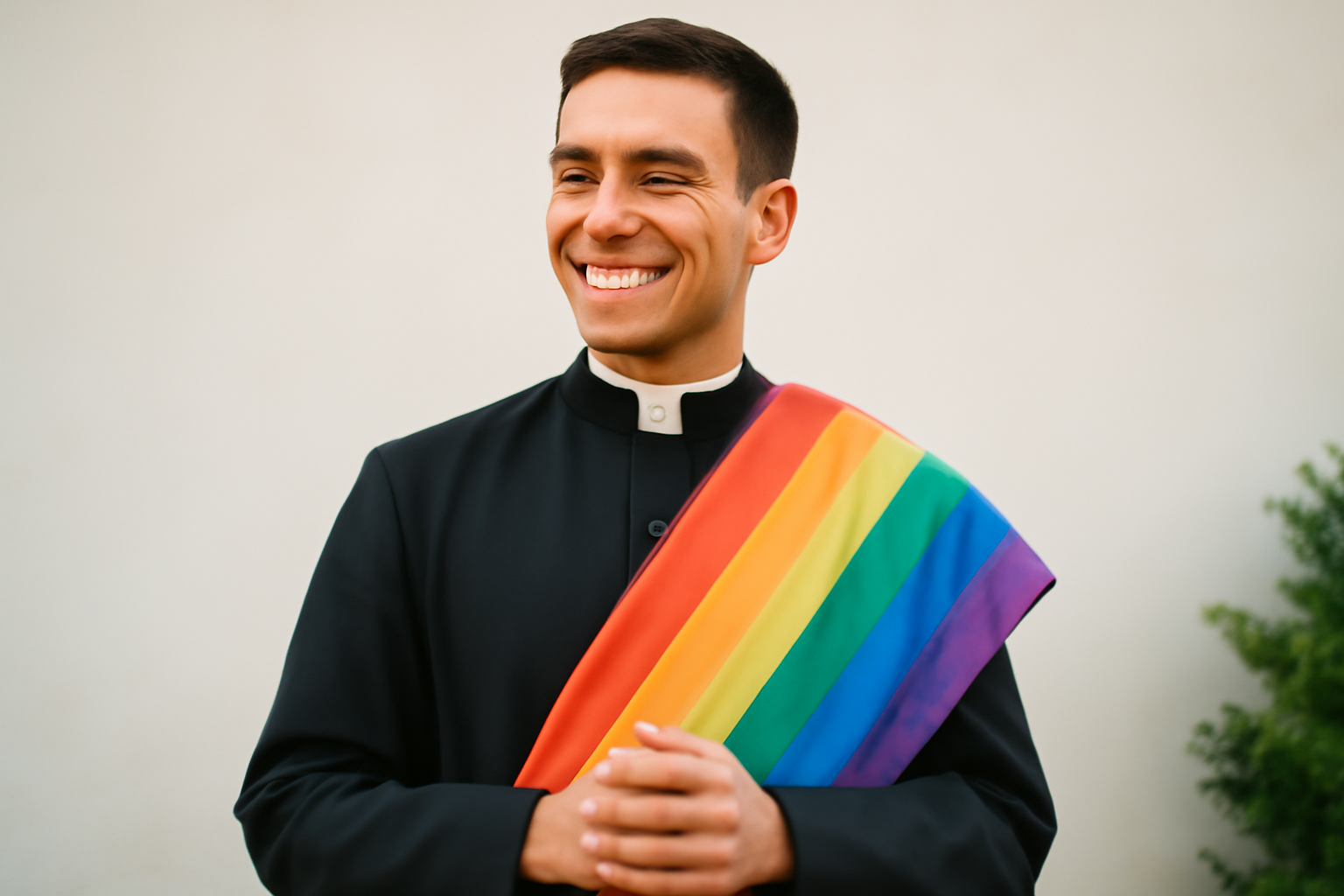
In a groundbreaking move, the Italian Bishops' Conference has released new guidelines indicating that openly gay men may be considered for the priesthood, provided they meet other necessary criteria for ordination. This development signifies a potential shift in the Catholic Church’s historical stance on the matter.
The document, titled Guidelines and Norms for Seminaries, emphasizes that the assessment of candidates should not be limited solely to their sexual orientation. Instead, it advocates for understanding a candidate’s sexuality within the broader context of their overall personality and character.
Addressing Past Stigmas
The Catholic Church has traditionally maintained a conservative view on homosexuality, describing it as "intrinsically disordered." Historically, individuals who engage in homosexual acts or promote what has been referred to as "gay culture" have been prohibited from entering the priesthood. These new guidelines, however, represent a significant departure from such exclusive prohibitions, suggesting that being gay should not automatically disqualify a candidate.
While the new guidelines propose a more inclusive approach, they reinforce the expectation that priests, regardless of sexual orientation, adhere to vows of celibacy. This has always been a cornerstone of the Catholic priesthood, where sexual abstinence is a requirement for all priests.
Holistic Candidate Evaluation
The guidelines advocate for a holistic view of seminarians, where various aspects of their character and spiritual readiness are taken into account. The Church believes that focusing solely on sexuality can undermine the potential contributions of individuals who might otherwise be well-suited to serve in the Catholic ministry.
This approach aligns with recent comments made by Pope Francis, who has consistently advocated for greater acceptance of LGBTQ+ individuals within the Church. In a statement to the Associated Press in early 2023, Pope Francis declared that "being homosexual isn’t a crime," reinforcing his position that the Church should be a place of welcome and love.
Pope Francis’ Stance
Despite these progressive steps, Pope Francis has also expressed caution. He has stated that candidates for the priesthood should be screened thoroughly, ensuring that those who are unable to uphold the vow of celibacy do not enter or remain in the priesthood. Last year, he sparked controversy by using a derogatory term when commenting on whether gay men should become priests, highlighting the complexity and sensitivity of the issue within the Church hierarchy.
Global Implications and Challenges
It remains uncertain whether these new guidelines will be adopted by bishops' conferences in other countries, as the Catholic Church is not a monolithic entity and often reflects diverse cultural attitudes towards LGBTQ+ issues.
This initiative may not change entrenched views overnight, but it does represent a step towards a more inclusive Church. By emphasizing a holistic view of candidates, the guidelines suggest a more nuanced approach to evaluating future priests, one that balances adherence to traditional values with a recognition of the diverse experiences that individuals bring to their spiritual vocation.
Conclusion
As discussions around these guidelines continue, they bring to the forefront important questions about how the Catholic Church can reconcile its doctrines with the evolving understanding of human sexuality and dignity. The progress made under Pope Francis' leadership indicates a willingness to engage with these questions, fostering dialogue that could influence broader societal and religious acceptance of LGBTQ+ individuals.
This conversation is a critical part of the Church's ongoing journey towards inclusivity, reflecting a broader trend within many religious institutions to embrace diversity in all its forms.
Related Posts
Triumphant Trans Woman Wins Legal Battle and Inspires Others to Stand Up for Their Rights
Breaking new ground: a landmark victory in transgender rights After battling in courtrooms and enduring endless challenges, Diana Portillo, a transgender woman, has secured a monumental victory in her decade-long fight against workplace discrimination. The result? Nearly $1 million awarded in a historic settlement. But this isn't just a win on paper—it represents a powerful precedent in combati [...]
Pride Month in Latin America: Protests and Demands for Equality
**Celebrating Pride and advocating LGBTQ+ rights in Latin America** Pride Month in Latin America was a lively mix where celebration met activism. Communities united, not just throwing a party but making a stand—demanding equality and pushing governments toward better protection and rights recognition. Throughout Latin America, pride events erupted in marches and cultural displays, each with a c [...]
Transgender Erasure Actions Implemented by National Park Service
```html Trump administration's impact on national park service and transgender recognition The Trump administration made notable moves in undermining transgender representation, which included directing agencies like National Park Service not include "T" and "Q" when they refered “LGBTQ” in any official communication. This move seems part a broader plan by this administration aimed at reducin [...]